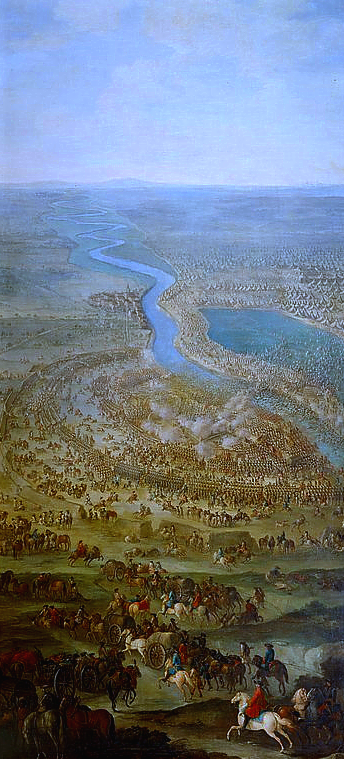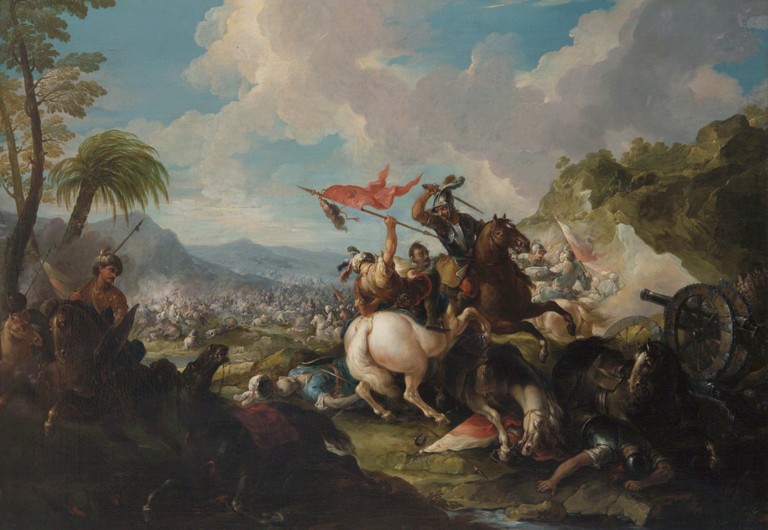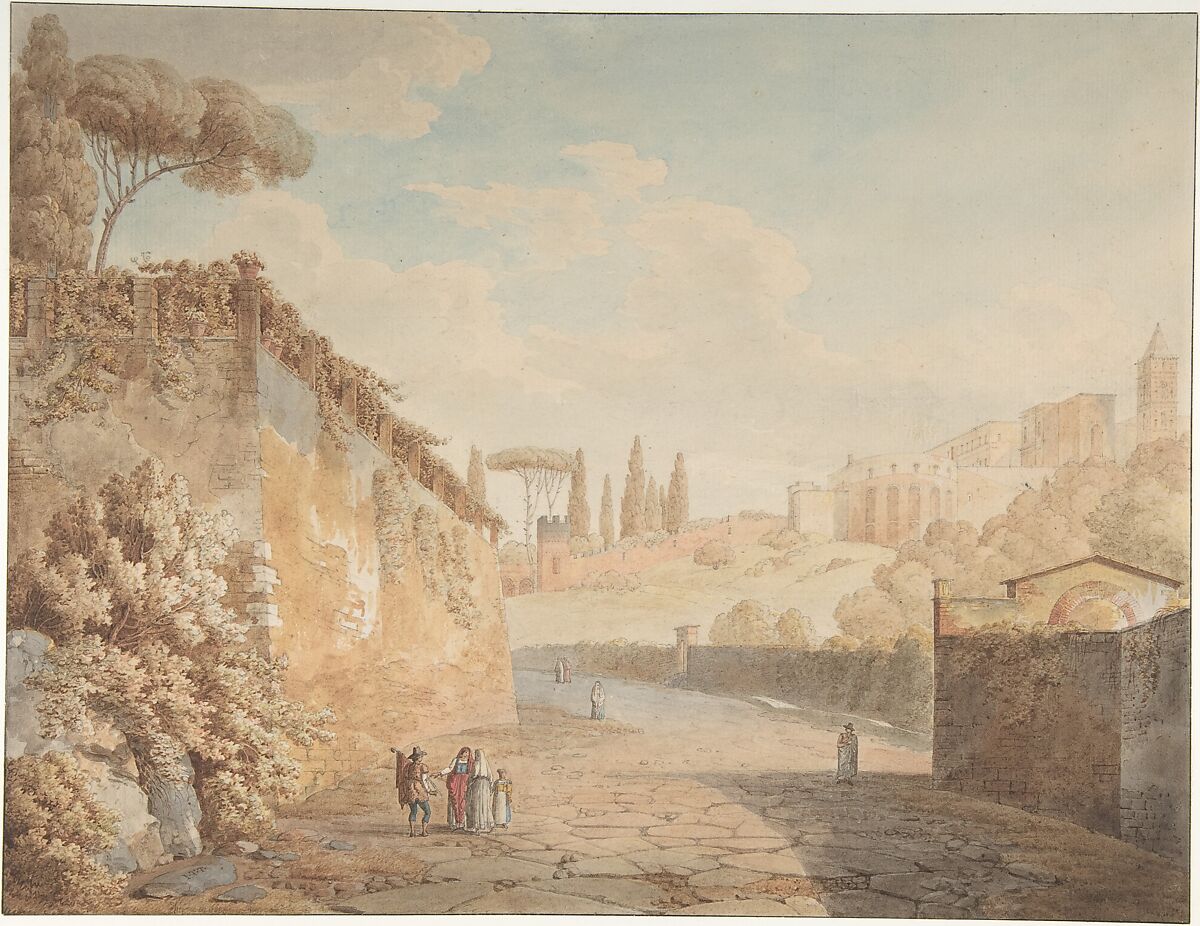-
Hollandali Altin Cag ressami Michiel Janszoon van Miereveltin olum yildonumu (27 Haziran 1641)
Frederick Henry, Prince of Orange, circa 1610

Portrait of a Young Woman, 17th century

-
Italyan ressam Ercole Gennariin olum yildonumu (27 Haziran 1658)
Farewell of Cato from Utica, 1636

Madonna col Bambino, XVII sec.

-
Fransiz ressam Jacques-Ignace Parrocelin dogum yildonumu (27 Haziran 1667)
11 septembre 1697 Bataille de Zenta, 1711 - 1720 (Musée d'histoire de l'art de Vienne)

Bataille contre les Turcs, 1711 - 1720 (Musée d'histoire de l'art de Vienne)

-
Alman ressam Johann Baptist Seelenin dogum yildonumu (27 Haziran 1774)
Brautbildnis von Katharina, der späteren Königin von Westphalen, etwa 1807

Die Erstürmung des Pfennigberges bei Linz durch das württembergische Jägerregiment Prinz Louis, 19. Jahrhundert

-
Fransiz ressam Eugène Petitvillenin dogum yildonumu (27 Haziran 1815)
Le Pont du Corbeau et la Grande Boucherie, 1841

Maison Barberin (Strasbourg), 1850

-
Fransiz ressam Jean-Thomas Thibaultnun olum yildonumu (27 Haziran 1826)
A Road below the Villa d'Este at Tivoli, 19th century

The Prayer, 19th century

-
Yunanistan dogumlu, Ingiliz ve Japonya vatandasi yazar Patrick Lafcadio Hearnin dogum yildonumu (27 Haziran 1850)
"Kaimon!" diye bagirdi samuray; ardindan da demirlerin acildigi duyuldu. Ikisi de iceri girdiler, genis bir bahceden gectiler ve bir girisin onunde durdular. Saray muhafizi sert bir sesle bagirdi: Iste burada! Hoiciyi getirdim! Ardindan telasli ayak sesleri, cekilen surguler, acilan kepenkler, kadinlarin miriltilari duyuldu. Kadinlarin konusmalarindan Hoici soylu bir evin hizmetkar dairesinde oldugunu anlamisti, ama yine de hangi eve getirildigini bir turlu cikaramiyordu. Bunu tahmin edebilmesi icin ona pek az zaman tanindi. Kvaidan Tuhaf Seylere Dair Oykuler

" Kaimon! the samurai called--and there was a sound of unbarring; and the twain passed on. They traversed a space of garden, and halted again before some entrance; and the retainer cried in a loud voice, Within there! I have brought Hôïchi. Then came sounds of feet hurrying, and screens sliding, and rain-doors opening, and voices of women in converse. By the language of the women Hôïchi knew them to be domestics in some noble household; but he could not imagine to what place he had been conducted. Little time was allowed him for conjecture.
Cin ve Kore etkisiyle birlikte gelisen animizm nedeniyle eski Japonya'da insanlar gercekten bir ruhlar ve cinler dunyasinda yasiyorlardi. Bunlar insana mirildanan goletler, gurleyen caglayanlar, inildeyen ruzgar ve hisirdayan agac yapraklari, cirlayan bocekler, doganin cikardigi tum sesler araciligiyla sesleniyordu. Insanin gorebildigi tum hareketler, dalgalar, otlar, sisler ya da bulutlar bir ruhun varliginin belirtisiydi; hatta yol ustundeki taslar gorunmez ve korkutucu bir yasamin gostergesiydi.

With the development of animism, under Chinese and Korean influence, the man of Old Japan found himself truly in a world of spirits and demons. They spoke to him in the sound of tides and of cataracts in the moaning of wind and the whispers of leafage, in the crying of birds, and the trilling of insects, in all the voices of nature. For him all visible motion whether of waves or grasses or shifting mist or drifting cloud was ghostly; and the never moving rocks nay, the very stones by the wayside were informed with viewless and awful being.
-
Bulgar sair, roman ve oyun yazari Ivan Minchov Vazovun dogum yildonumu (27 Haziran 1850)
Gergin ve ahenkli ses cikaran bir tel
herhangi bir seyi yankilayan
bir tek carpma veya ugursuz darbe
herzaman ayni rondoya gore.

A tight and chiming string
that resounds to anything
a single stroke or evil blow
always by the same rondo.
Ben de bir gun gidecegim
Otlar ve tozun uzerinde ben bitecegim
Biri bana agit yakacak, digeri lanetleyecek
Ancak sarkilarim daima okunacak

I, too, shall die, for Death can show no mercy.
Wild grasses round my silent grave shall crowd.
Someone may pity me, another curse me.
But still my verses shall be read aloud.
 Gönderi Kuralları
Gönderi Kuralları
- Yeni konu açamazsınız
- Konulara cevap yazamazsınız
- Yazılara ek gönderemezsiniz
- Yazılarınızı değiştiremezsiniz
-
Forum Rules







Yer İmleri